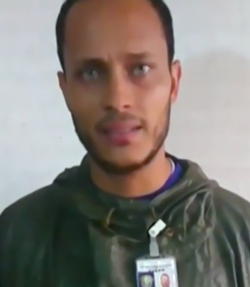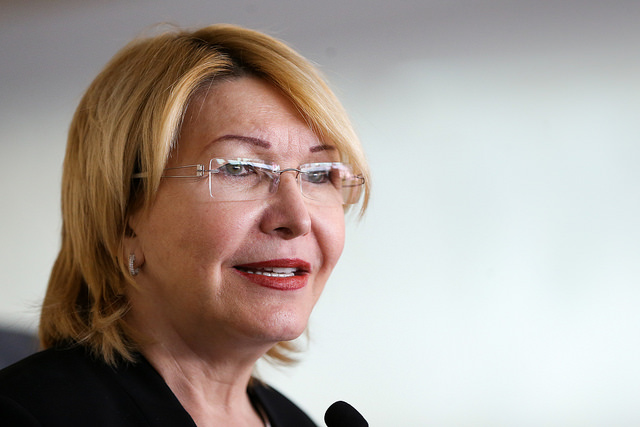A Helicopter and a Dream: The Impact of Óscar Pérez on Venezuelan Rebellion

“I fight for the freedom of the country, for a better tomorrow,” stated Óscar Alberto Pérez, Venezuelan nationalist and rebel, moments before his death at the hands of the Venezuelan National Guard. “The fear of dying is what I have least now. It’s not the fear of death, but the fear of failure, of failing the people.”
Pérez, following his noble words, did not fear death, and for the 77% majority of Venezuelans who support the resignation of Venezuelan president, Nicolás Maduro, he did not fail his people. Pérez gained significant notoriety based upon the Caracas helicopter incident of 2017, where he famously threw grenades at both the Ministry of Industry and the Supreme Tribunal of Justice from a stolen Maduro helicopter. This act, branded as terrorism by Maduro, was seen by a majority of Venezuelans as justifiable on the basis of Pérez’s message: upholding article 350 of the Venezuelan constitution. This article, branded onto his hijacked helicopter, states that “The people of Venezuela… shall disown any regime, legislation or authority that violates democratic values, principles and guarantees or encroaches upon human rights.”

Óscar Alberto Pérez embodies one of the most significant rising classes of Venezuela: the disillusioned youth. One student leader outlined the reason for this protest, stating that a main concern of these rebels is that the ‘government is stealing their future.’ As many of these rebels have grown up in a time of decline and intense power grabbing from the Maduro regime, their view of the regime is jaded, juxtaposed with older Venezuelans’ more positive view of Maduro’s party given the populism of his predecessor, Hugo Chavez. Additionally, unlike the more established elders of Venezuela, the youth have virtually nothing to lose, leading to the demographic being more prone to revolt.
A key critique of Maduro’s regime is that they have not been receptive to protests, responding with bullets and censorship rather than listening and concern. Maduro has implemented a number of unique strategies to punish dissidents. For instance, Maduro has made it a priority to not return the bodies of killed rebels, such as the aforementioned Pérez. As the Venezuelan population is generally quite religious, with 91% of the population identifying with a faith, majority Christian, the right to burial is integral, as well as the right to closure that a body could provide. Taking away one’s family’s right to their body has thus dissuaded rebels from acting as boldly as Pérez has.
Another technique Maduro has implemented is a travel restriction on dissenting Venezuelans, believing that protesting groups cannot curry favour with international allies if they are not given the chance to congregate with them. This ban began with high ranking officials, such as Lilian Tintori, the wife of Leopoldo López, leader of an anti-PSUV party, the Voluntad Popular, who was restricted from leaving the country in 2017, due to affiliation with her husband. Similarly, Attorney General Luisa Ortega Díaz was placed on a permanent ban of leaving the nation due to her response to Óscar Pérez’s helicopter stunt, state that ‘his terrorism’ was okay, because it was in response to “state terrorism”, an allusion to Maduro’s violent responses to criticism. This ban may seem to only target the most prominent protesters; however, many have pointed to Maduro’s restriction of passports to Venezuelan commoners as a tactic to keep the majority dissenting population disconnected from the international world.

Finally, Maduro’s biggest technique seems to be adopted from his predecessor Hugo Chavez: censorship. It is a prevalent theme, and no coincidence, that in Venezuela, those who criticize the government soon become labelled as criminals. Reporters Without Borders has reported that Venezuela, under Maduro, has dropped 60-plus rankings in press freedom, and that it ranks an abysmal 137th out of 180 nations in news coverage freedom. In the same breath, propaganda in the form of cadenas, or obligatory, pro-government announcements, and the tight domination of universities and schools in Venezuela, have all led to a Maduro-centric education with little room for dissidence.
However, it seems that Maduro’s hardline tactics have not worked, but rather, enraged the disillusioned farther. Protests have become increasingly violent. There has been a protest everyday in the streets of Caracas for 102 days straight, with a recorded death toll of 115 people over these days. Maduro needs to focus less on suppression and more on reality: can he reform himself into a favourable position? Or is it too late?
Edited by Benjamin Aloi
